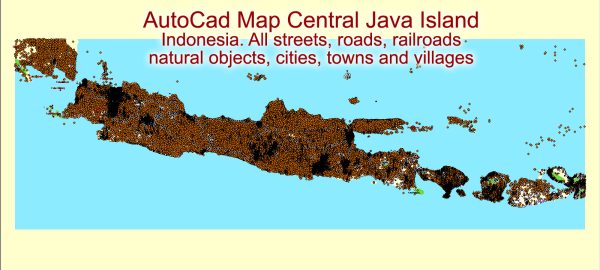Java, the most populous island in Indonesia, has a rich and complex political history. This history is intertwined with the broader political developments in Indonesia, as Java has been the center of political power and cultural influence for much of the country’s history. Here is an overview of Java’s political history:
- Pre-Colonial Era:
- Before the arrival of European powers, Java was home to a number of powerful kingdoms and empires. The most notable among these was the Majapahit Empire, which was one of the largest and most influential empires in Southeast Asia from the late 13th to the early 16th centuries.
- Colonial Era:
- In the 17th century, the Dutch East India Company (VOC) began establishing a presence on Java, eventually leading to the Dutch colonization of the island. The Dutch exerted control over Java and much of the Indonesian archipelago for several centuries.
- Japanese Occupation:
- During World War II, the Japanese occupied Java from 1942 to 1945, ousting the Dutch colonial administration. This occupation had a significant impact on the political consciousness of Indonesians and played a role in the struggle for independence.
- Struggle for Independence:
- Following World War II, Indonesia declared its independence on August 17, 1945. The Indonesian National Revolution was marked by fierce battles between Indonesian nationalists and Dutch forces. Java was a key battleground in this struggle for independence.
- Formation of the Republic of Indonesia:
- The Republic of Indonesia was officially recognized as an independent nation on December 27, 1949, and Java became a central part of the newly formed nation. Jakarta, located on Java, became the capital of Indonesia.
- Sukarno Era:
- Sukarno, a charismatic leader, served as the first President of Indonesia from 1945 to 1967. His administration was marked by efforts to consolidate power and establish a centralized government. His leadership style and policies had a significant impact on Java and the nation as a whole.
- Suharto Era:
- General Suharto came to power in 1967 after a period of political turmoil and instability. His “New Order” regime brought stability and economic growth to the country. However, it was also characterized by authoritarian rule and widespread human rights abuses. Suharto’s rule lasted until 1998.
- Post-Suharto Era:
- The fall of Suharto in 1998 marked a turning point in Indonesia’s political history. The country transitioned to a more democratic system. Java continued to be at the center of political and economic life, and Jakarta remained the capital.
- Contemporary Politics:
- Java remains the political and economic heart of Indonesia. It is home to the country’s capital, Jakarta, and is a major center for political and cultural activities. Indonesia has seen multiple presidential elections and political developments since the fall of Suharto, with various parties and leaders vying for power.
Java’s political history reflects the broader history of Indonesia as it transitioned from colonial rule to independence and dealt with the challenges of nation-building and democratic governance. The island’s central role in Indonesian politics and culture continues to be significant in the present day.


 Author: Kirill Shrayber, Ph.D.
Author: Kirill Shrayber, Ph.D.